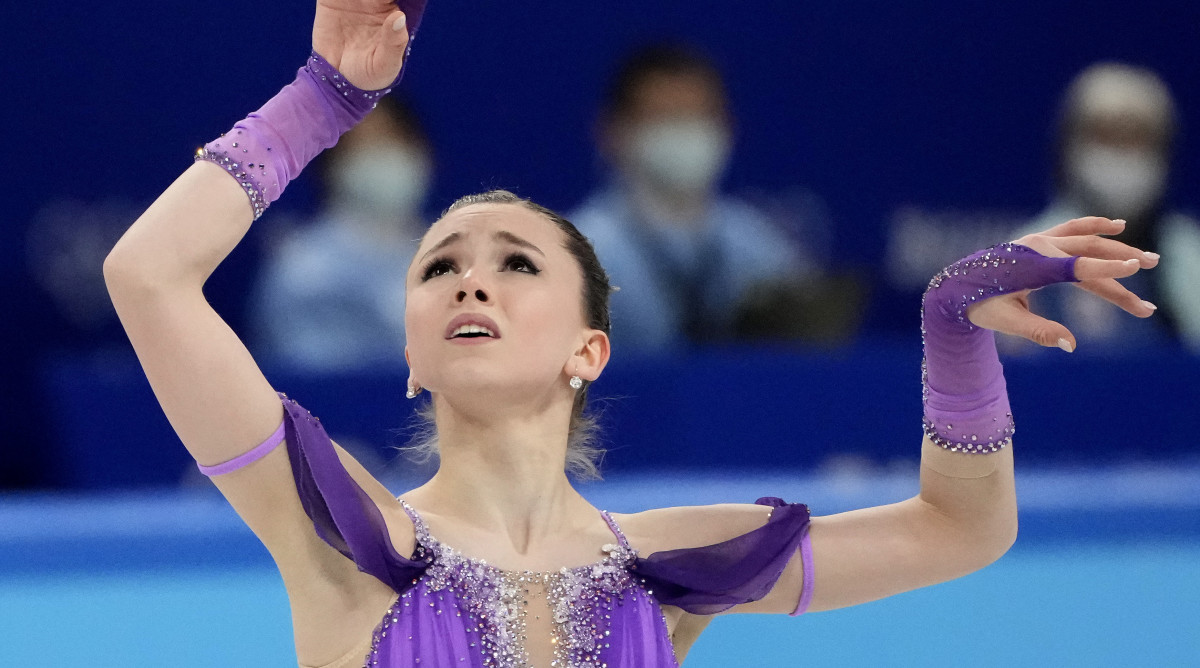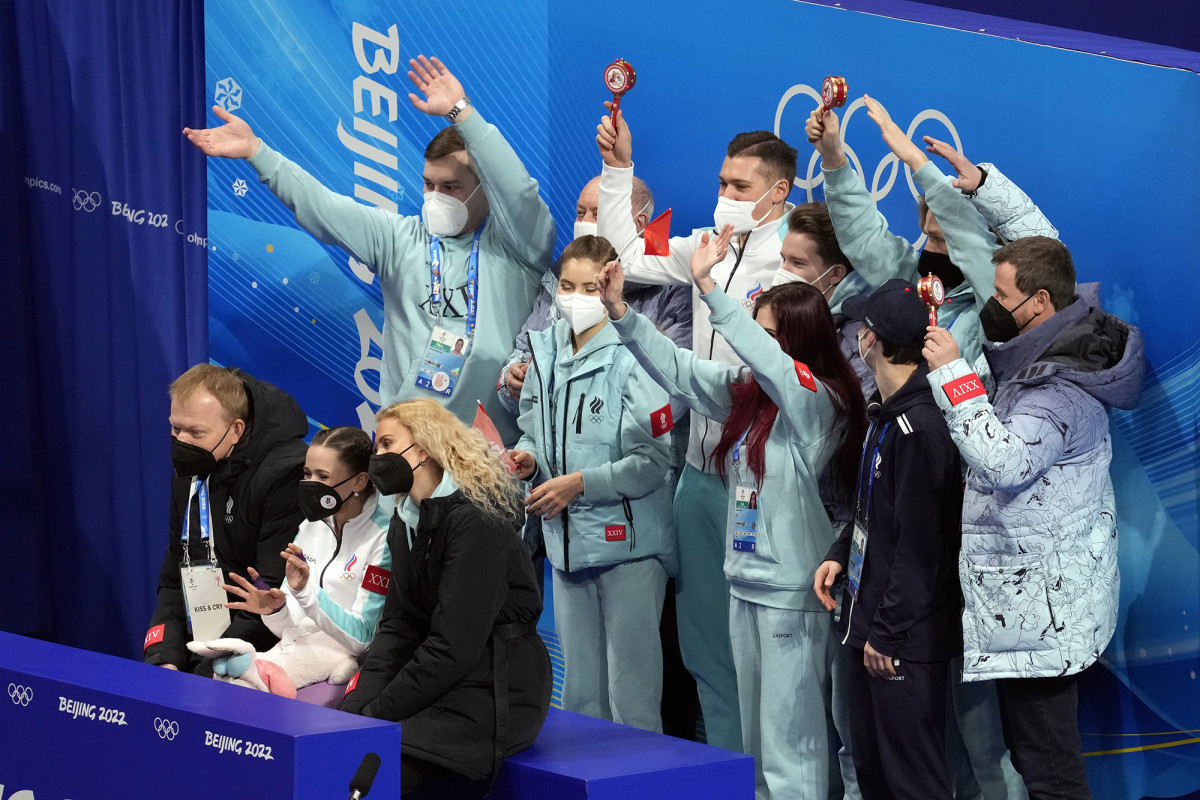With Kamila Valieva’s Failed Drug Test, The IOC’s System Failed Once Again

BEIJING — Finally, a reprieve from talking about Russia’s cheating at the Olympics! This time, it’s the Russian Olympic Committee’s cheating at the Olympics.
Eight years after Team Russia ran a sophisticated state-sanctioned doping program that involved passing dirty samples through a hole in a wall, and two years after it was punished by having to call itself by a ridiculous acronym containing the word Russia and wear a marginally modified version of the Russian flag, we are doing this again. It’s hard to believe those crippling sanctions did not teach Russia a lesson!
The International Testing Association confirmed on Friday that star 15-year-old Russian—sorry, ROC—figure skater Kamila Valieva had tested positive for a banned substance called trimetazidine. It is most commonly prescribed to treat angina, chest pain caused by a heart that is not getting enough oxygen—not a condition commonly found in teenagers. Most such drugs work by reducing the strain on the heart; trimetazidine increases blood flow to the heart. That could be helpful if your heart is engaged in, say, vigorous exercise.

The World Anti-Doping Agency defines trimetazidine as a stimulant and has banned its use by athletes in competition since 2014 and at all times since ’15. Chinese swimmer Sun Yang, a three-time Olympic gold medalist and 11-time world champion, served a three-month doping suspension in ’14 for using it; he has said he was treating a heart condition.
According to the ITA, Valieva was tested on Dec. 25 during the Russian national championships. Her sample was not run until Feb. 7, when it came back positive. In the meantime, she had competed in and helped win the team competition at the Olympics. The Russian Anti-Doping Agency automatically suspended her provisionally. She requested a hearing; the next day, RUSADA unsuspended her.
That’s right: The Russian Anti-Doping Agency, which, according to the 2016 McLaren Report, spent much of the aughts operating as the Russian Pro-Doping Agency, identified that a Russian athlete had doped, then unilaterally announced that actually, she hadn’t.
The International Olympic Committee—and let’s make sure not to elide its responsibility in all this—announced on Friday that it would appeal the decision to the Court of Arbitration for Sport. The International Skating Union announced that it would appeal as well, as did WADA. About the only organization left to join the appeal is NATO. Valieva is next scheduled to compete on Tuesday in the women’s individual event; this weekend’s CAS hearing will determine if she can participate. She is the heavy favorite for gold.
ROC released a statement noting that Valieva had tested negative both before and after Dec. 25, including at the Games. (All users of performance-enhancing drugs, of course, test negative before and after they test positive.) ROC's official Twitter account asked followers in Russian to show support and “let Kamila feel your love.” Russian skaters have declined to comment after competitions and have declined to make themselves available to the media after practices. Valieva has liked posts on Instagram championing her.
Meanwhile, none of the skaters have received their medals from the team event. Officials postponed the medal ceremony, originally scheduled for Tuesday, until they can determine who should get what. U.S. skaters, who finished second, were standing in the lobby that night, waiting to be picked up, when they were told to go back upstairs and change out of their uniforms. Nearly all the news they have received since has come from Twitter.

The whole affair has veered beyond absurd and into hilarious, unless of course, you are an Olympic figure skater wondering if your competitors’ results are legitimate and until you remember that we are talking about a child. Most of the current skaters are too well-coached to gripe publicly, but American skeleton athlete Katie Uhlaender has nothing to lose: She finished fourth in Sochi by four-hundredths of a second. Third was Russian Elena Nikitina, who was one of the 28 Russians the IOC later banned for life and stripped of their results. Two months later, the CAS—an organization whose appeals division was once run by IOC president Thomas Bach and is currently helmed by former top IOC official John Coates—reinstated them. Given that level of cross-pollination, could the IOC really not have foreseen that its ruling would be overturned?
In any event, that meant no bronze for Uhlaender, who on Friday spoke about her disappointment in the system.
“It’s not independent,” she told reporters. “None of this is independent. It’s all run by the IOC. It’s really hard to have faith in a system that failed so hard in 2014.”
The Games are a treasure. The people who run them do not deserve them. There are so many victims of this negligence, from the fans to Valieva’s opponents to Valieva herself. Anything short of her expulsion from the Olympics will send the same message the IOC has been sending for years: You can break the rules as long as you are a powerful country. Otherwise, we will see this again and again—from Russia, or the ROC or whatever they are forced to call themselves next.
More Olympic Coverage:
• Super-G Reminds Mikaela Shiffrin She Is Still Who She Thought She Was
• Chloe Kim Avoids the Pitfalls of Pressure in Beijing
• 17-Year-Old Jordan Stolz Is the Next Big Thing in U.S. Speedskating
